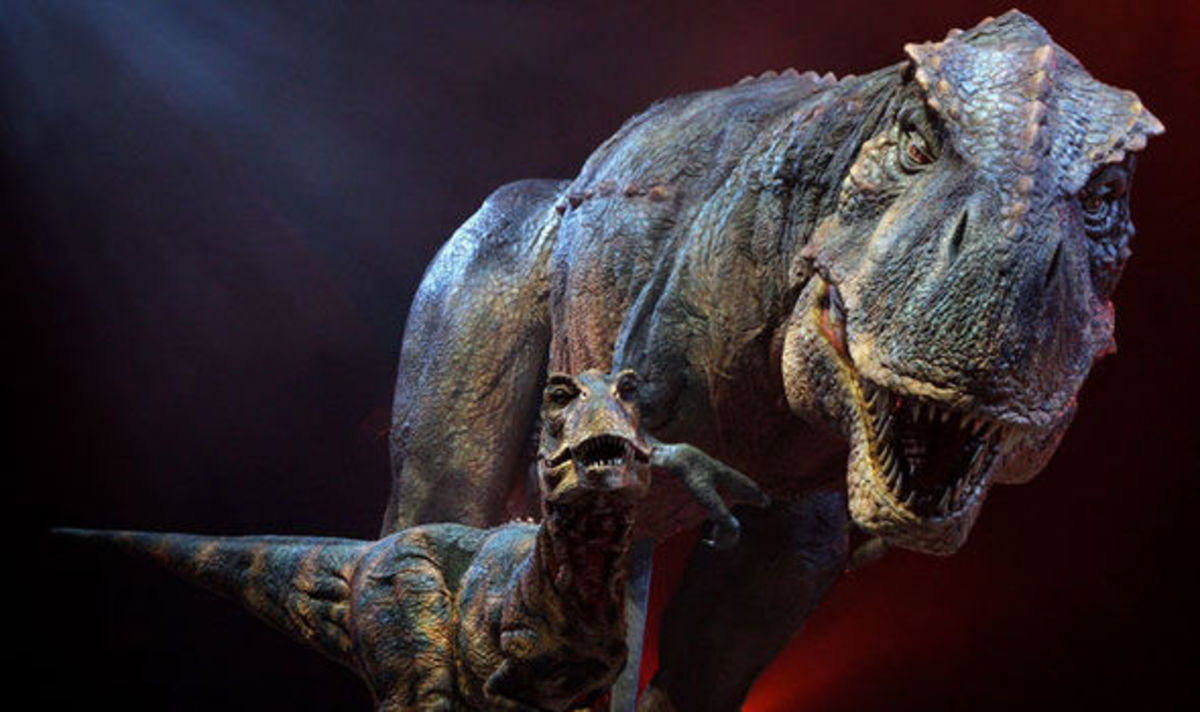How Did The Dinosaurs Become Extinct?

So How did the Dinosaurs Become Extinct?
There are plenty of thoughts surrounding the death of the dinosaurs, the most common which is the meteor theory. In the past it was often thought that the extinction of the dinosaurs had been caused by a great flood, or simply the displeasure of God.
Over the coming article I will be giving you a few of the more popular theories as to why the dinosaurs became extinct, sprinkled liberally with the facts supporting each theory.
A Little Background Information
It is important to take note that the world was a completely different place 65 million years ago. When questioning how did the dinosaurs become extinct, you have to remember that there were some key differences in the world.
- There were no Polar Icecaps (Which were 50 Degrees Centigrade Warmer than their temperatures today.
- Despite the warmer poles, the overall temperature of earth was much more uniform than it is today, the Equater was at most 35 degrees centigrade warmer than the poles.
- Carbon Dioxide levels were 12 times higher, leading to much more rapid, and evolutionary ferocious, plant growth.
- Volcanic Activity was decreasing this led to slower plant growth, and a cooling of global temperatures.
- Oxygen levels were much greater, but fluctuated hugely. (A Drop in Oxygen is the most likely cause of the demise of larger dinosaurs.
An Impact Event
One of the most probably and widely accepted theories of how the dinosaurs became extinct is through an impact from a large piece of outer space debris, or an intense meteor shower. Many scientists believe the Chicxulub crater (A staggering 110 miles in diameter) may have been the result of a 10km wide meteor which could have easily have caused a worldwide extinction of animals that could not adapt to the significant rise, then significant drop of the Earth's temperature.
Not everyone agrees on whether the earths temperature would rise, fall, or do both after the impact of something as large as 10 miles in diameter. Everyone agrees however that the changes would have been immense, and catastrophic.
The Deccan Trap Theory
The Deccan Trap theory is linked to a huge amount of volcanic activity, specifically in India. There was a huge amount of volcanic activity, which could have started around a million years before the meteor impact, and rpeviously fitted in to a theory that the dinosaurs became gradually extinct.
There is no doubt that the Deccan Trap erruptions must have caused a huge amount of extinction, their unprescedented style would have released huge amounts of volcanic gasses which would have caused Global Warming, and blocked a large amount of sunlight, reducing the growth of plant life.
How Did the Dinosaurs Become Extinct
Failure to Adapt
A lot of evidence also points to the plant life changing from a species called Gymnosperms plants (Such as conifers) to angiosperms (Flowering Plants) which many animals simply cannot eat.
The animals that did not adapt to the changing plant life had to face even more environmental stresses. From temperature fluctuations, to changes in the amount of oxygen in the air they had to breath.
It is highly possible that the much less stable environment the dinosaurs lived in, combined with a meteoric finale might have finished off the dinosaurs that could have survived otherwise.
If the Dinosaurs Became Extinct, What About Us?
Whatever the cause of the Dinosaurs extinction really was, we have some pretty good causes as to what might have killed off one of this planets most exotic and diverse collection of animals. Now we simply need to be aware that catostrophic changes to our environment can occur, much worse than the politically fueled Carbon Based Global Warming theory.
Preparation for an environmental disaster is next to impossible, and entirely unpredictable. But Humanity is the most flexible and adaptable species to have arrived on the planet earth, and we will be the best placed to survive against the worst the Universe can throw at us.







